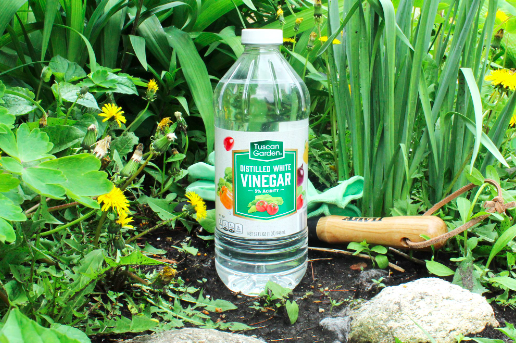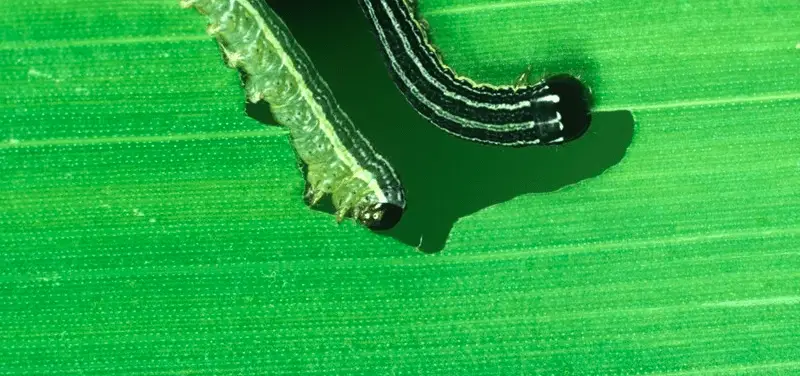There is a battle taking place in many backyards across the country this summer. On one side are the caterpillars, munching on leaves and destroying plants. On the other side is vinegar, a natural pesticide that can kill these pesky critters. In this blog post, we will explore whether or not vinegar can be used to get rid of caterpillars.
Will Vinegar Kill Caterpillars?
Yes, vinegar can kill caterpillars. Vinegar is a natural insecticide that works well for getting rid of many pests. However, vinegar is an acidic substance and can harm plants if not used properly. Be sure to dilute the vinegar with water before using it on your plants. You should also avoid spraying it on hot days, as the sun can cause the vinegar to burn leaves.
To use vinegar to kill caterpillars, mix equal parts of vinegar and water in a spray bottle Then, simply spray the mixture on the caterpillars. The acid in the vinegar will kill them quickly. You can also use this mixture to deter caterpillars from coming back. Simply spray it around the perimeter of your garden.
I recommend using neem oil if you want to eliminate caterpillars without damaging your plants. Neem oil is a natural pesticide that is derived from the neem tree. It works by disrupting the caterpillars’ growth and reproduction. Neem oil is safe to use around children and pets, and it will not harm your plants.
If you do decide to use vinegar to kill caterpillars, be sure to take caution. Here are my top tips for using vinegar on catepillars:
- Only use a diluted solution of vinegar, not straight from the bottle
- Avoid using vinegar when leaves are receiving direct sunlight
- Try out the spray on a small section of your plant before dousing the whole thing
- Rinse off any excess vinegar after spraying
- Monitor the situation closely to make sure the caterpillars are gone for good

What Else Can I Do To Remove Caterpillars?
Vinegar is an easy and effective way to get rid of caterpillars. However, there are a few other things you can do to deter these pests:
Bucket of Soapy Water
This method is simple but effective. Fill a bucket with water and add a few drops of dish soap. Then, pick off the caterpillars by hand and drop them into the bucket. The dish soap will kill them quickly.
Remove Their Food Source
Caterpillars love to munch on leaves, so removing their food source is a good way to deter them. You can do this by regularly trimming your plants and picking off any dead leaves. This will make it less appealing for caterpillars to come into your garden.
Set Up a Barrier
You can also deter caterpillars by setting up a physical barrier around your plants. This could be something as simple as placing a piece of cardboard around the base of your plant. The caterpillars will not be able to get past the barrier and will eventually give up and
Beneficial Insects
Another way to get rid of caterpillars is to introduce beneficial insects into your garden. Ladybugs and green lacewings are two examples of insects that will eat caterpillars. You can purchase these insects from your local nursery or online.
Release them into your garden to let them do their work. Beneficial insects are a great way to get rid of pests without using chemicals.
Bacillus Thuringiensis
Bacillus thuringiensis (BT) is a bacteria that specifically targets caterpillars. It works by paralyzing the caterpillar’s digestive system, causing them to stop eating and eventually die. BT is available in powder or liquid form and can be found at your local garden center.
Conclusion
In conclusion, vinegar can kill caterpillars. However, it is important to use caution when using this method, as vinegar can also harm plants. If you’re looking for a more natural solution, try neem oil or release beneficial insects into your garden. You can also deter caterpillars by removing their food source or setting up a physical barrier.
Do you have any tips for getting rid of caterpillars? Please do share them in the comments below! Thanks for reading!
Tim is an avid gardener from the UK. He was the founder of PlantCarer.com from 2021 to Sep 2023. He sold PlantCarer.com to Aaron. He has since started his own business called Seed To Supper, which provides new gardeners all the materials you need in a box (pots, seeds, compost and instructions) to grow your own delicious and nutritious vegetables and herbs from start to finish – no garden required.

